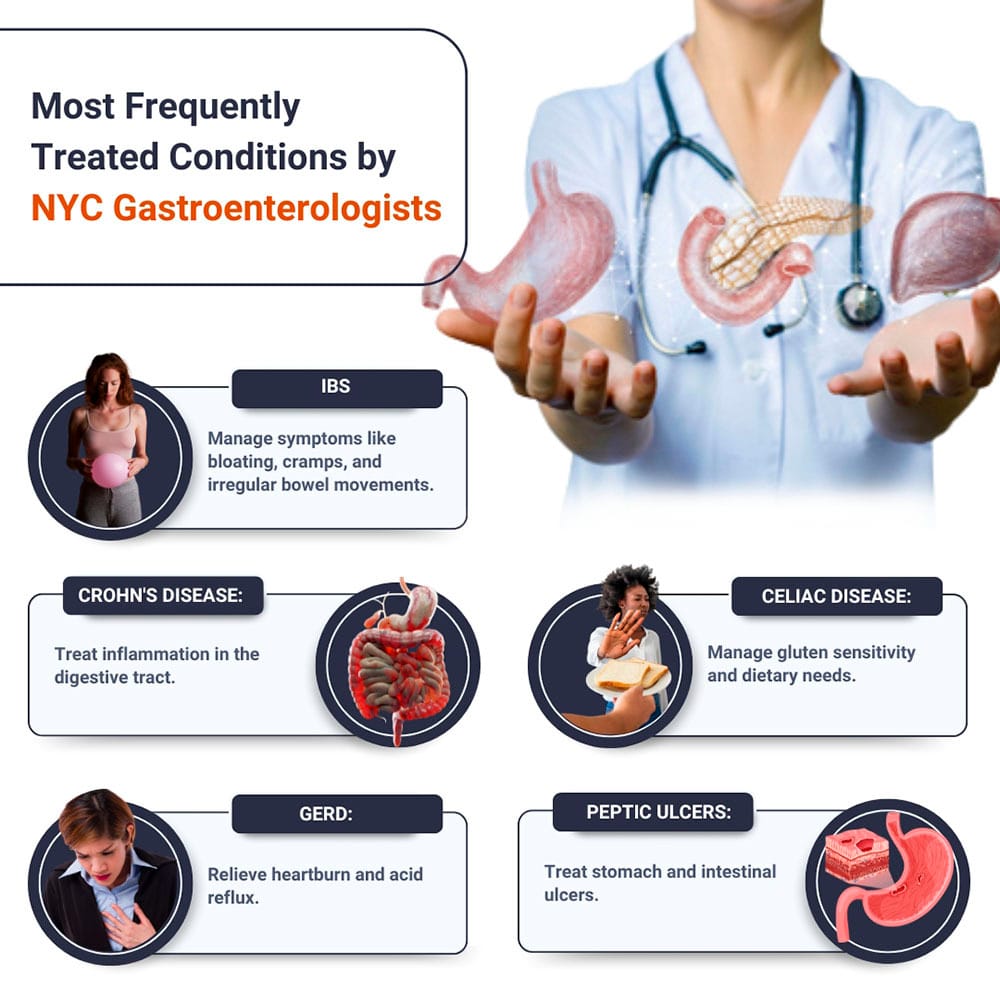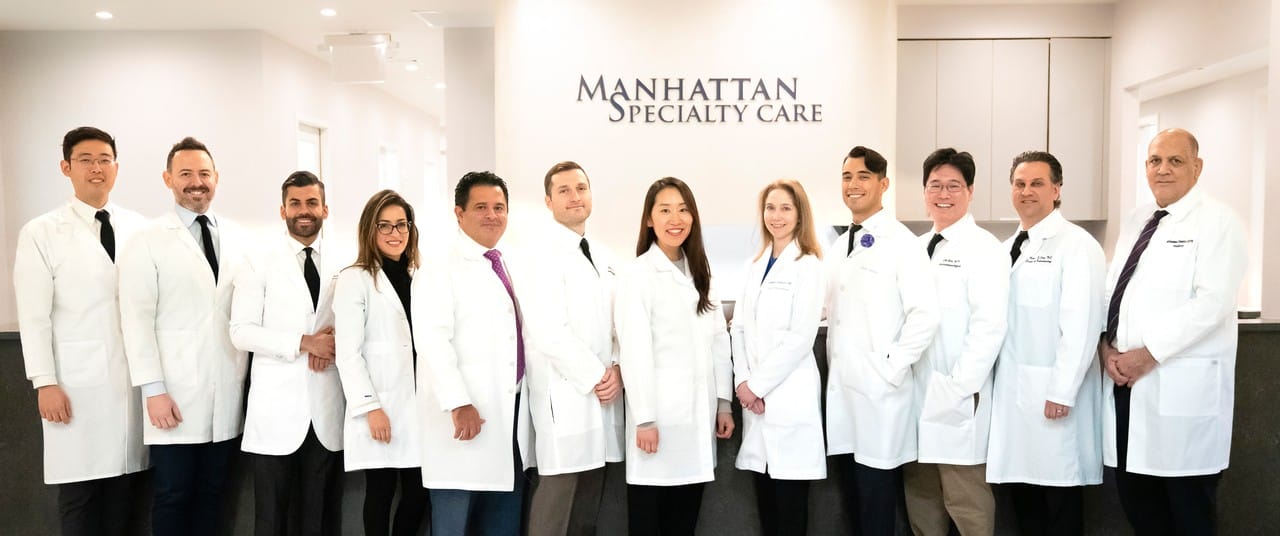If you’ve ever faced the occasional stomach ache or more chronic digestive trouble, you know how crucial digestive health is to overall well-being. In New York, gastroenterologists are the go-to experts for everything gut-related, handling a variety of conditions—from the every day to the complex.
Let’s dive into some of the most common issues they treat, blending expert insights with approachable advice that gastroenterologists in New York may give.
IBS: What is IBS?
What is IBS, Anyway?
Ever felt like your stomach is on its own rebellious path? That’s pretty much what Irritable Bowel Syndrome (IBS) feels like. It’s a common, yet tricky, condition that brings on symptoms like stomach cramps, bloating, and unpredictable bowel habits—think diarrhea one day, constipation the next.
Why IBS Happens
Doctors aren’t entirely sure why IBS shows up, but they do know stress, diet, and past infections play a role. And fun fact (or not-so-fun, depending on how you look at it): it’s more common in women and younger folks.
Managing IBS
Treating IBS often starts with tweaking your diet. Foods high in fiber or following a low FODMAP diet (don’t worry, your doctor will explain that!) can be game-changers. Sometimes, medications come into play too. In NYC, gastroenterologists are pros at crafting personalized treatment plans that aim to soothe your symptoms and improve your daily life.

Crohn’s Disease
What’s Crohn’s Disease?
Crohn’s disease is a heavyweight in the world of gastrointestinal conditions. It’s a form of Inflammatory Bowel Disease (IBD) that leads to persistent inflammation anywhere in the digestive tract, though it usually hits the small intestine hardest.
Symptoms and Struggles
This condition can be tough, bringing on intense bouts of diarrhea, severe abdominal pain, and fatigue. There’s also the risk of complications like blockages or fistulas that sometimes need surgery.
Fighting Back
Treatment is a team effort involving medications like anti-inflammatory drugs, immune suppressors, and newer biological therapies. For severe cases, surgery might be necessary. NYC’s gastroenterology experts are constantly adopting the latest treatments to relieve their patients and improve their quality of life.
Celiac Disease: What is Celiac Disease
The Gluten Connection
If gluten triggers your digestive woes, celiac disease might be at play. This autoimmune disorder reacts to gluten (found in goodies like bread and pasta) by triggering an immune response that irritates your small intestine.
Spotting the Signs
Celiac symptoms range widely but often include chronic diarrhea, bloating, and fatigue. Diagnosis typically involves blood tests and sometimes a biopsy, giving a clear picture of what’s happening inside.
Living Gluten-Free
The gold standard for managing celiac? A strict gluten-free diet. It’s life-changing for those affected, helping heal the intestine and preventing future flare-ups. Many patients team up with dietitians to ensure they’re meeting all their nutritional needs.
GERD: When Heartburn Becomes a Regular
Understanding GERD
We’ve all had heartburn after a heavy meal, but when it happens frequently, it might be Gastroesophageal Reflux Disease (GERD). This chronic condition involves stomach acid frequently flowing back into the esophagus, causing irritation and discomfort.
What Causes GERD?
From a relaxed lower esophageal sphincter to lifestyle factors like obesity and certain foods, several things can spark GERD. Smoking and even some medications might make things worse.
Keeping GERD in Check
Managing GERD often starts with lifestyle tweaks—like adjusting your diet, shedding some pounds, and avoiding trigger foods (looking at you, caffeine and alcohol!). When that’s not enough, medications like proton pump inhibitors come to the rescue. For more severe cases, surgical options are on the table, and NYC gastroenterologists are well-versed in these procedures. Chronic GERD may also require endoscopy to be performed to diagnose Barrett’s esophagus which is a precursor to esophageal cancer.
Peptic Ulcers: More Than Just a Stomach Ache
What Causes Ulcers?
Peptic ulcers — painful sores in the stomach or small intestine—are usually the result of an H. pylori infection or long-term use of NSAIDs (think ibuprofen).
Symptoms to Watch For
Burning stomach pain is the hallmark sign, often coupled with bloating. In more severe cases, ulcers can cause serious symptoms like vomiting blood.
Treatment Approaches
Treatment focuses on antibiotics to tackle H. pylori, medications to reduce stomach acid, and lifestyle changes. NYC’s gastroenterology clinics provide comprehensive care, guiding patients toward recovery and better digestive health.
The Bigger Picture of Digestive Health

Gastroenterologists in New York do more than just treat the common conditions listed above. They’re also deeply involved in preventive care, like colonoscopies, which are key for catching colorectal cancer early.
Innovative Care
Thanks to advances in medical technology, gastroenterologists now offer cutting-edge treatments, from minimally invasive procedures to advanced biologics for IBD.
If you’re dealing with digestive issues, don’t go it alone. New York’s gastroenterologists have the expertise and the tools to help you navigate your gut health journey. Whether it’s IBS, Crohn’s, or just persistent heartburn, there’s a path to better health waiting for you.
Ready to learn more? Visit our homepage to connect with top gastroenterology NYC experts and start feeling better today.

